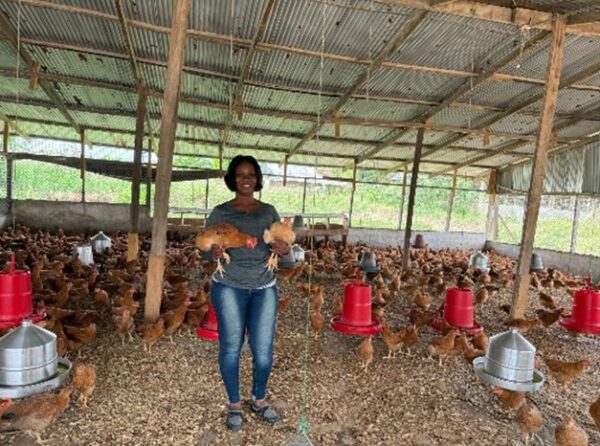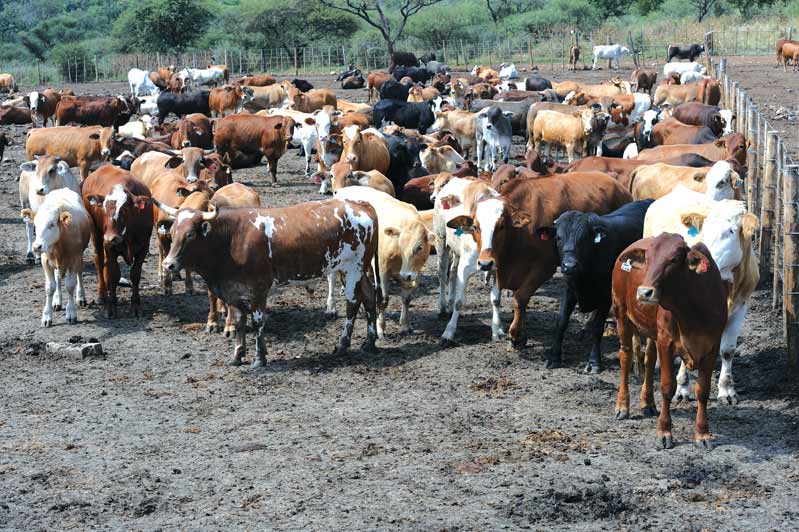For most poultry farmers, feed is like gold dust. Every scoop poured into a feeder is an investment, a hope that tomorrow’s chickens will be heavier, healthier, and closer to market.
But that hope does not always hold. Birds fall sick, growth slows, and soon the farmer is spending more on medicine and extra feed than they are making in returns. Profits shrink, frustration rises.
Yet the answer may not lie in buying more drugs or switching feed brands. Instead, it could be in something simple, often overlooked, and fundamental: gut health. Inside the bird’s digestive system is an invisible but decisive factor that can mean the difference between a struggling poultry venture and a thriving, profitable farm.
Why Gut Health Matters
Gut health refers to the overall condition of a chicken’s digestive system—from the integrity of the gut lining to the balance of good and bad bacteria inside. Importantly, the gut is central to immunity. Scientists estimate that nearly 70 percent of a bird’s immune defenses are linked to the gut.
A strong gut means stronger resistance to disease; a weak one makes the birds vulnerable and increases costs for farmers.
“The aim is to provide an environment in the gut where the bad bacteria cannot thrive, only the good bacteria,” says Ranier van Herden, business manager for ruminant solutions in Sub-Saharan Africa at global chemicals company Evonik.
Ignoring gut health can prove extremely costly. Imagine investing heavily in quality feed only for it to be poorly digested and wasted. Instead of building muscle and weight, birds become thin and weak as nutrients pass through unused. Worse still, poor gut health provides a breeding ground for harmful bacteria like salmonella, E. coli, or coccidiosis. Treating these infections consumes money, time, and often entire flocks.
“Sometimes what hurts the farmer is that subliminal loss, that 10% loss that they didn’t anticipate,’’ notes Melanie Frisch, Regional Technical Manager IMEA (India, Middle East, and Africa) at Biochem.
Gut Health and Profitability
The connection between gut health and farm profitability may not be obvious at first, but its impact is clear. Birds with healthy guts convert feed into body weight more efficiently, reaching market size faster and with less feed. This directly lowers input costs and boosts margins.
A healthy gut also reduces the need for frequent and costly trips to the agrovet. Birds with strong digestive systems are less likely to suffer from diarrhoea, stunted growth, or sudden death. This translates into fewer medical bills and better overall productivity.
The benefits extend further:
- Layers with healthy guts produce more eggs of higher quality.
- Broilers grow uniformly, making them more appealing to buyers.
- Mortality rates drop, ensuring more birds reach market age.
Food safety also improves. Birds with balanced gut microbiota shed fewer harmful bacteria, reducing contamination risks in meat and eggs. For farmers aiming at supermarkets or export markets, where food safety standards are strict, gut health is a gateway to more lucrative opportunities.
Spotting the Signs of Poor Gut Health
Farmers can detect gut problems from performance in the flock. Birds may eat plenty yet remain thin and weak. Other red flags include watery droppings, uneven growth, frequent disease outbreaks, or dull and ruffled feathers.
Layers may lay fewer or poorer-quality eggs, while broilers take longer to hit market weight. These outward signs reflect deeper issues inside the gut, even before lab tests confirm the damage.
A review in Biomarkers for Monitoring Intestinal Health in Poultry: Present Status and Future Perspectives (2018) points to the gut’s epithelial lining as a key indicator. This thin layer of cells absorbs nutrients while blocking harmful bacteria. When intact, it allows for fast growth and stronger immunity. When damaged, however, the gut becomes “leaky,” leaving birds vulnerable to infections such as salmonella.
In healthy birds, this lining is smooth and intact with long villi, maximizing nutrient absorption. In unhealthy birds, the villi shorten and crypts deepen, allowing harmful bacteria to thrive.
“The mentality is not to run away from the bacteria but to control the bacteria,” emphasizes Ranier van Herden.
How Farmers Can Maintain Gut Health
The good news is that protecting gut health does not always require expensive solutions. Often, it comes down to basics.
“Farmers sometimes overlook basic things like clean water and good litter management, yet these are the foundation of gut health,” says Alvin Juma, a veterinary doctor.
Simple but effective practices include:
- Clean water: Regularly flush water lines and clean drinkers daily to prevent salmonella and E. coli.
- Feed quality: Store feed in dry, clean areas and buy only from trusted suppliers. Avoid moldy or dusty feed, and consider affordable natural additives such as probiotics or organic acids.
- Hygiene and biosecurity: Regular cleaning, removing wet litter, and restricting visitors help minimize disease spread. Separating age groups also protects vulnerable chicks.
- Good management: Providing enough space, airflow, and consistent feeding routines prevents stress and supports optimal digestion.
More Than Profits—Peace of Mind
Investing in gut health brings more than financial rewards. It gives farmers peace of mind, reducing the constant worry of disease outbreaks or unexplained losses. Better feed conversion and healthier flocks also build a reputation for producing quality birds, which in turn opens access to better-paying markets.
Poultry farming is full of uncertainties—fluctuating feed prices, unpredictable weather, shifting market demands. Gut health is one area farmers can control. As Dr. Emily Muema, Chief Executive Officer of Kenya’s Veterinary Medicine Directorate (VMD), puts it:
“We have what we need, we just need to know when and how to use what to get the best results for our poultry.”
By prioritizing gut health, farmers not only secure the well-being of their flocks but also unlock consistent profitability and long-term sustainability. In the end, healthier guts truly mean healthier profits.








